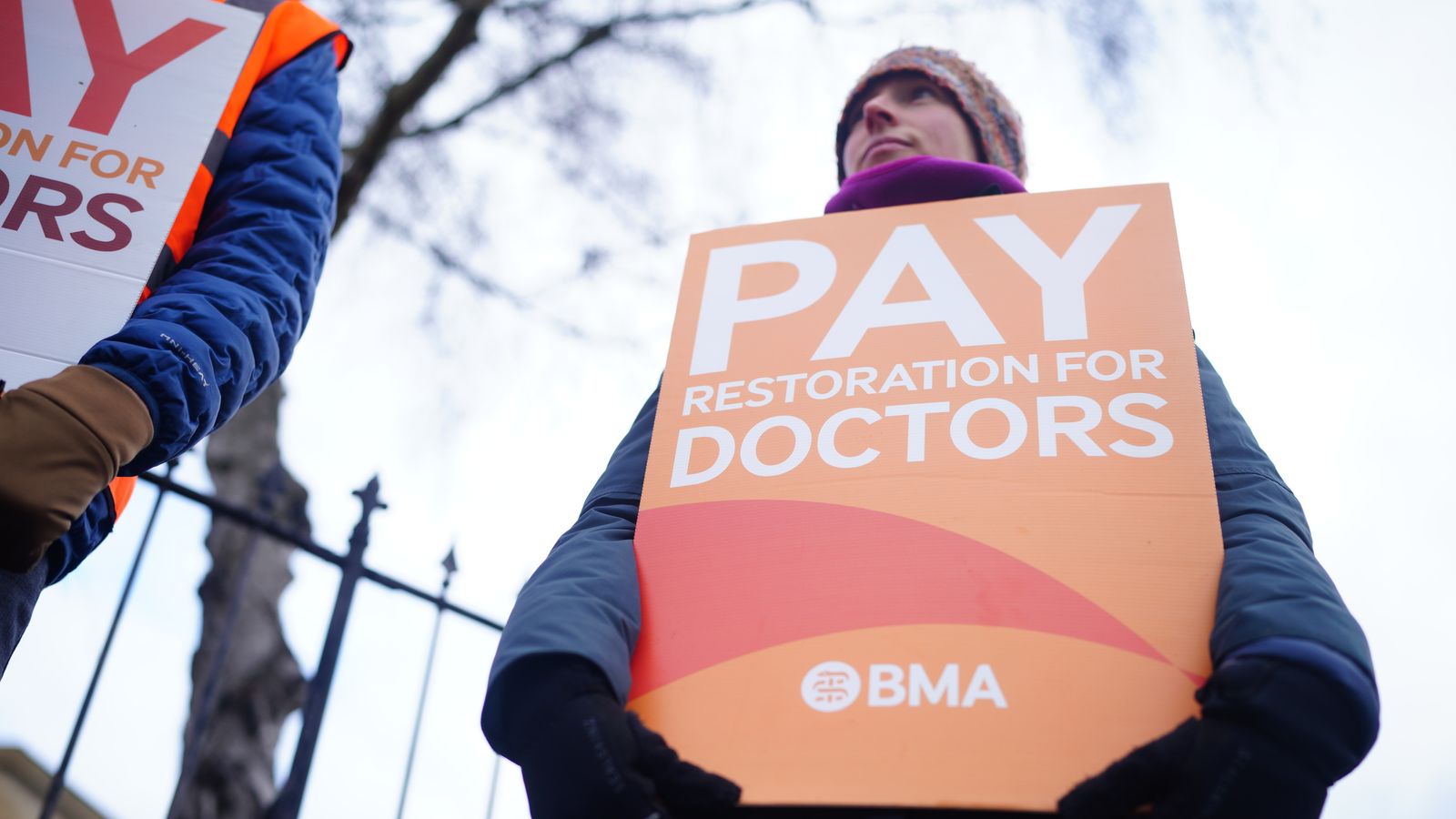Resident doctors vote in favour of strike action
Resident doctors in England have voted in favour of strike action, the British Medical Association (BMA) has announced.

The term "resident doctor" replaced "junior doctors" last year, in a bid to better reflect their expertise and responsibilities.
Doctors in England and Wales were awarded a 5.4% pay increase by the government, but the British Medical Association threatened strike action following the announcement, claiming the increases did not account for historical pay freezes.
The BMA is calling for a salary increase of 29.2% to bring salaries back to "full pay restoration". The union argues this is the level at which pay has declined in real terms since 2008, when adjusting for inflation.
Turnout for the vote was 55%, which means just under half of eligible doctors voted for strike action.
More than 26,000 resident doctors voted in favour of strikes, while just under 3,000 voted against.
Strike dates 'to follow'
"It's time for Wes Streeting to find a credible path to pay restoration," the BMA said.
"Failing that, we'll be calling for a strike of resident doctors across England, with dates to follow."
In a video, shared on social media, representatives for the BMA confirmed "strike planning is already underway" and dates could be announced "very soon".
Other NHS workers in England, including nurses, midwives, and physiotherapists, will get a 3.6% pay increase effective from 1 April, the Health Secretary previously said.
"It's time for Wes Streeting to find a credible path to pay restoration," the BMA said. "Failing that, we'll be calling for a strike of resident doctors across England, with dates to follow."
The results are in: we have a clear mandate to strike.
More than 90% of you who voted in our ballot, voted YES.
You’ve made it clear: enough is enough.
The Royal College of Nursing general secretary Nicola Ranger said nursing staff are "similarly voting in strong numbers and telling the government to go faster in repairing a damaged NHS and undervalued workforce".
Last year, the government offered resident doctors a 22% pay rise to end months of strike action.
While this was the highest public sector pay award in recent years, the BMA emphasised it was only a partial restoration, and not the full amount needed to fully bring pay back in line with previous levels.
Doctors on strike is not what patients or politicians want to hear.
During the last industrial action nearly 1.5 million appointments and procedures were cancelled.
Plus this new vote to strike comes just days after the much-hyped 10-year plan for the NHS, and only a few weeks since the NHS was widely regarded as a big winner in the government's spending review.
The health secretary is in a precarious position.
As soon as he took office, Wes Streeting began negotiations to end the industrial action.
But it's not enough for the newly renamed resident doctors, who say "woefully inadequate" real-time pay is still less than levels in 2008.
Their ballot means strikes could begin as early as next month, and last well into the difficult winter period.
It could bring weeks of misery to patients who have already faced long and painful waits for appointments and treatments.
The BMA wants urgent talks with the health secretary.
They are demanding more money, to avert the walkouts.
It is a critical moment for Wes Streeting, and one which threatens his ambitions for the NHS. Targets to bring down backlogs, and tackle waiting lists are in jeopardy.
There isn't an endless pot of cash. But strikes would be hugely unpopular with patients.
Other key health workers are watching on closely, with nurses already saying they too are considering industrial action.
A Department for Health and Social Care spokesperson said: "While most resident doctors in the BMA did not vote to strike, it is disappointing that the BMA is continuing to threaten strike action after a pay rise of 28.9% over the last three years.
"The Secretary of State has been clear that he wants to work constructively with all unions, including the BMA, to improve working conditions for NHS staff and avoid strike action, which can be hugely disruptive for patients."
-SKY NEWS







